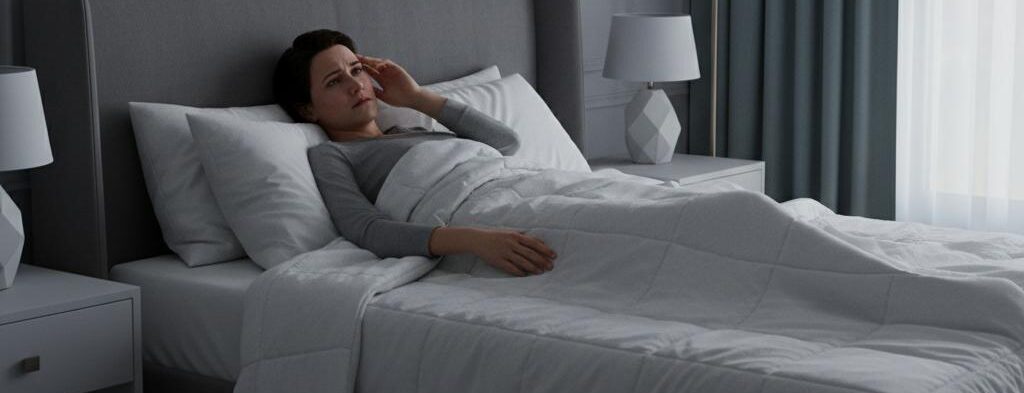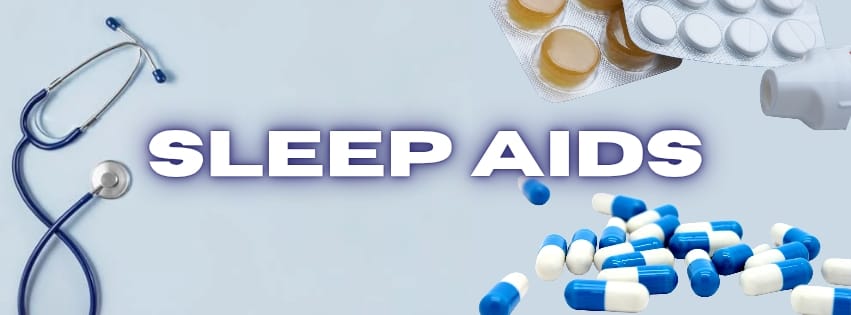
Sleep disorders are conditions that affect your ability to sleep in terms of quality, amount and duration. There are over 80 sleep disorders but some of the common ones are insomnia, restless legs syndrome (RLS), sleep apnea and narcolepsy. While proper sleep is pivotal to your mental and physical health, sleep disorders negatively impact the well being of your mind and body.
Sleep disorders affect your sleep in following ways.
- How well you can sleep – Quality of sleep
- When you fall asleep and if you can stay asleep – Timing of sleep
- How much sleep and wakefulness you get – Quantity and duration

Contents:
Major Categories of Sleep Disorders:
There have been changes in the categories of sleep disorders over past years. Lately, the International Classification of Sleep Disorders (ICSD) categorized sleep disorders based on the indications, how they affect a person and the body system it affects. The latest update in the third edition, ICSD-3R includes the following categories:
- Insomnia: Difficulty in falling and staying asleep.
- Sleep-related breathing Problems: The breathing pattern changes during the sleep.
- Central disorders of hypersomnolence: Difficulty in feeling alert during the day.
- Circadian rhythm sleep-wake disorders: The internal physiological clock makes it difficult to fall asleep and wake up on time.
- Parasomnias: Physical actions or verbal expressions happen during sleep like walking, talking or eating.
- Sleep-related movement disorders: Physical movements or the urge to move makes it difficult to fall asleep and/or stay asleep.
The ICSD keeps updating its study regularly to include the most recent information about sleep disorders and the types that fall under these categories.
Types of Sleep Disorders:
There are over 80 different types of sleep disorders. The most common include:
Chronic insomnia:
Having trouble falling asleep or staying asleep most of the nights for at least three months causing irritation and fatigue as a result.
Obstructive sleep apnea:
Heavy snoring during the sleep with moments during the sleep when you stop breathing. This consequently disrupts your sleep.
Restless legs syndrome:
You have the urge to move your legs when you rest. The tingling sensation in your legs keeps you from falling asleep.
Narcolepsy:
You have no control over when you fall asleep or how long you stay awake. This means you will suddenly feel extremely tired and fall asleep without warning.
Shift work sleep disorder:
You have problem falling asleep and staying asleep and feel sleepiness at odd times due to work schedule.
Delayed sleep phase syndrome:
You fall asleep at least two hours after your desired bedtime and have difficulty waking up in time for school or work.
REM sleep behaviour disorder:
You perform or act your dreams while in the rapid eye movement (REM) stage of sleep.
How much sleep is necessary?
Sleep is essential for human body as it resets your mind and body to affectively and efficiently perform your daily routine. Better the sleep, more active and prepared the body is to perform. According to experts, adults should take seven to nine hours of sleep per night. Optimal sleep time varies by age; for example, children and teenagers may need more sleep than adults.
Symptoms and Causes:
While everyone can have some problems with their sleep from time to time depending on certain variables, but following can be the symptoms of sleep disorders.
- Difficulty in falling asleep or it takes more than 30 minutes time to fall asleep on regular basis.
- Trouble to stay asleep through the night or waking up frequently during the night and inability to fall asleep again.
- Snoring, gasping or choking experienced during sleep.
- You feel like moving when you relax. Movement relieves this condition.
- You feel like you can’t move when you wake up.
Once awake after having experienced any of the above indications, you may experience additional signs and symptoms that include:
- Daytime sleepiness, taking frequent naps or falling asleep while doing routine tasks during the day.
- Behavioural changes like difficulty concentrating or paying attention at work or study.
- Mood changes like irritability and difficulty in managing the emotions
- Difficulty meeting deadlines or performance expectations during school or work
- Frequent accidents or falls
If you feel like you’re not able to get a good night’s rest or have symptoms that negatively affect your daytime activities, it’s better to talk to your doctor.
Causes of Sleep Disorders:
A disturbance in your body’s sleep cycle and daytime wakefulness causes sleep disorders. Some particular condition may cause this to happen, and it varies based on the type of sleep disorder you have. These can include:
- A symptom of a medical condition like heart disease, respiratory issues, pain or a nerve condition.
- A symptom of a mental health condition like anxiety or depression.
- Consumption of food or drinks containing caffeine or alcohol before bed time.
- A side-effect of an ongoing medication.
- Working in odd hours or in the night shift.
- It can be due to genetic factors (a mutation).
- Deficiency of certain chemicals or minerals in the brain.
- An unknown cause.
Studies suggest that females are more prone to experience sleep disorders than males. Moreover; approximately half of all adults over the age of 65 have a type of sleep disorder.
What happens if I don’t get enough sleep?
If you don’t get the recommended amount and quality of sleep that your body needs, it can affect you beyond feeling tired during the daytime. A lack of proper sleep can lead to memory issues like difficulty in learning, remembering or making decisions. This can also have negative impact on your personality like developing irritability. Then there’s risk of slowing down of your reflexes that could cause accidents to happen. Not only this, sleep disorders can also contribute to the development of health conditions like Obesity, Heart disease, Type 2 diabetes, Depression, and Dementia. Though rare, even some sleep disorders can be life-threatening.
Diagnosis and Tests:
A health practitioner will diagnose a sleep disorder after a physical exam to review your symptoms and testing. Tests can help your doctor to learn more about the causes of your symptoms like blood tests or imaging tests. They can ask you to maintain a sleep log whereby you will record your sleep timings, as well as other sleeping habits.
This will also include any sleep that you took during the daytime and how you feel before and after having the sleep. It can be done manually by recording on a piece of paper near your bed although it is difficult to know what time you fall asleep exactly so an estimate can serve the purpose. An easier solution is to wear a smartwatch or a device that logs your cycles of rest and activity with even greater details about the quality and type of sleep you had during night.
Your doctor may also recommend you visit a sleep specialist who’ll perform a sleep study (polysomnogram). A sleep study is a sleep disorder test that electronically transmits and records specific body and brain activities while you sleep. The doctor will analyse the sleep study data to determine whether or not you have a sleep disorder.
Treatment of sleep disorders:
Many types of treatment options are available for various sleep disorders, which could include:
- Undergoing cognitive behavioural therapy.
- Changing your sleeping routine to promote a regular sleep schedule and proper sleep hygiene.
- Medicines (like sleeping pills or alerting agents) or supplements (like melatonin).
- Changing medicines or their dosage that cause excessive sleepiness (don’t stop taking a medication unless your doctor approves it).
- Using a CPAP (continuous positive airway pressure) machine or having a neurostimulator implanted to control sleep apnea.
- Using light therapy.

The health practitioner will advise the treatment to your sleep disorder depending on your particular situation. They will also take you in confidence about the possible side effects before the treatment is started.
Medications for Sleep Disorders:
Medications play a crucial role in managing various health conditions, but it’s important to understand their uses, benefits, and potential risks. This article provides general information and should not replace professional medical guidance. Your doctor may recommend some of the following medicines and supplements to treat common sleep disorders:
Insomnia:
Sleep aids including Melatonin, Zolpidem, Zaleplon, Eszopiclone, Ramelteon, Suvorexant, Lemborexant Ordoxepin
Restless legs syndrome:
Medication like Gabapentin, Gabapentin Enacarbil or Pregabalin
Narcolepsy:
Stimulants or wake-promoting medications, such as Amodafinil, Armodafinil, Pitolisant, mixed salt or Sodium Oxybate, and Solriamfetol
Disclaimer: The information provided in this article is for general educational purposes only and should not be taken as medical advice. Always consult a qualified healthcare professional before starting, stopping, or changing any medication.

The effects of sleep disorders can be so problematic that you will need an immediate relief. However; the complicated or severe cases may take longer time to go away. If the treatment plan is followed religiously and regularly in continuous consultation with the doctor, you can find your way to better sleep and get away with your sleep disorder.




